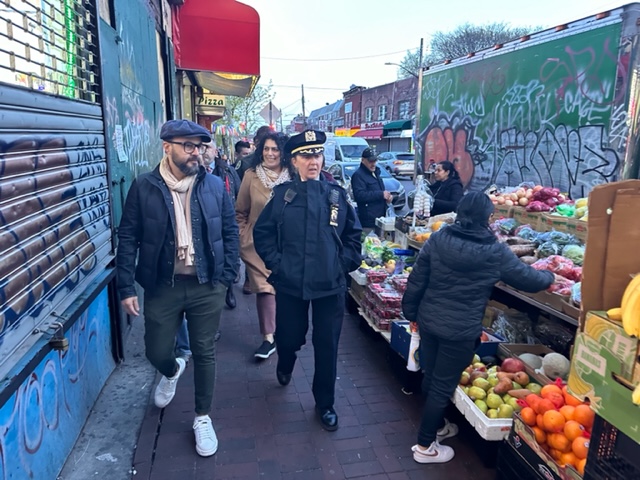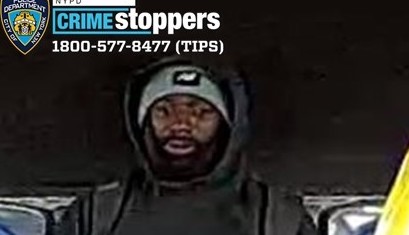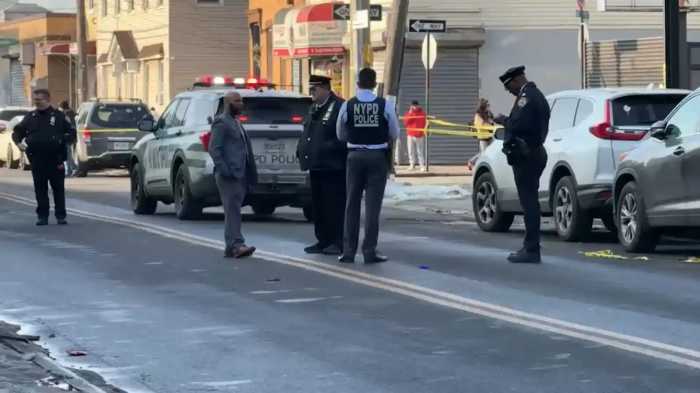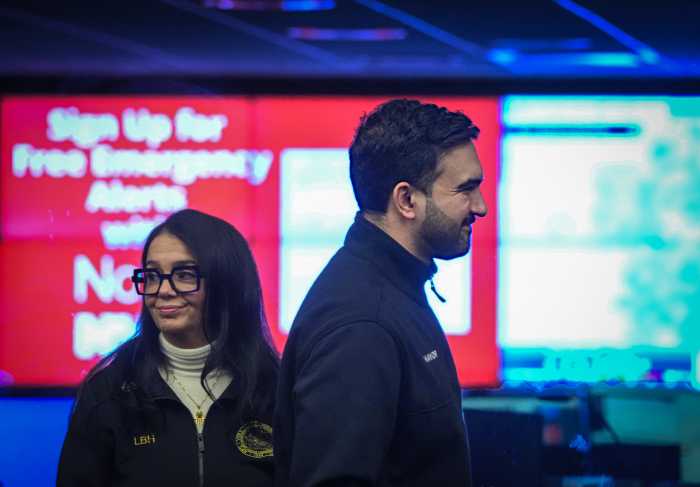Council Member Francisco Moya led a walk-through along Roosevelt Avenue in Corona with representatives from nearly a dozen city agencies to point out quality-of-life issues that have affected residents and business owners for too long, including the proliferation of massage parlors, unregulated street vending and uncleanliness.
Following the tour, Moya announced he is re-establishing the Roosevelt Avenue Task Force, a multi-agency effort to tackle pressing concerns that was initially created in 1991 but has faltered in recent years.
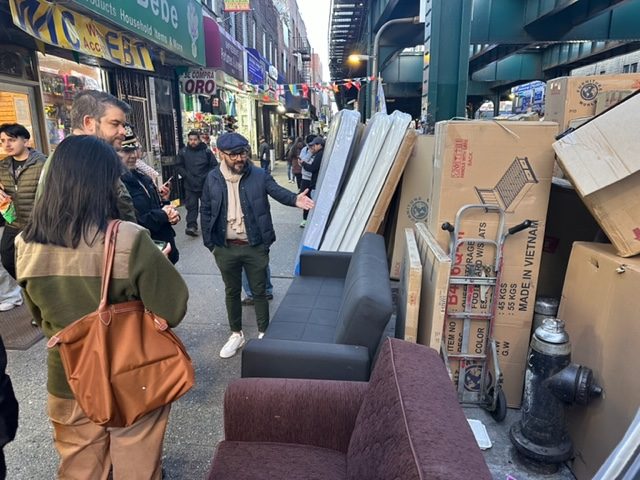
“Our community deserves better than the current situation on Roosevelt Avenue,” Moya said. “The chaos and disorder we’ve witnessed on Roosevelt Avenue cannot be allowed to continue and must be addressed immediately. The Roosevelt Avenue Task Force will bring together key city agencies to restore order, uphold community standards, and preserve the essence of our neighborhood.”

These agencies include the New York City Sheriff’s Department, the Mayor’s Office of Intergovernmental and External Affairs, the Department of Transportation, the Department of Buildings and the Mayor’s Office of Nightlife. It also includes the NYPD and the Department of Sanitation, which just over a week earlier conducted enforcement raids against unlicensed street vendors and migrants who sell clothing, food and beverages, kitchenware and home goods and toys and stuffed animals that crowd the sidewalks. Officers confiscated merchandise and issued violations for illegal vending. Following the sweeps, Moya was unapologetic.
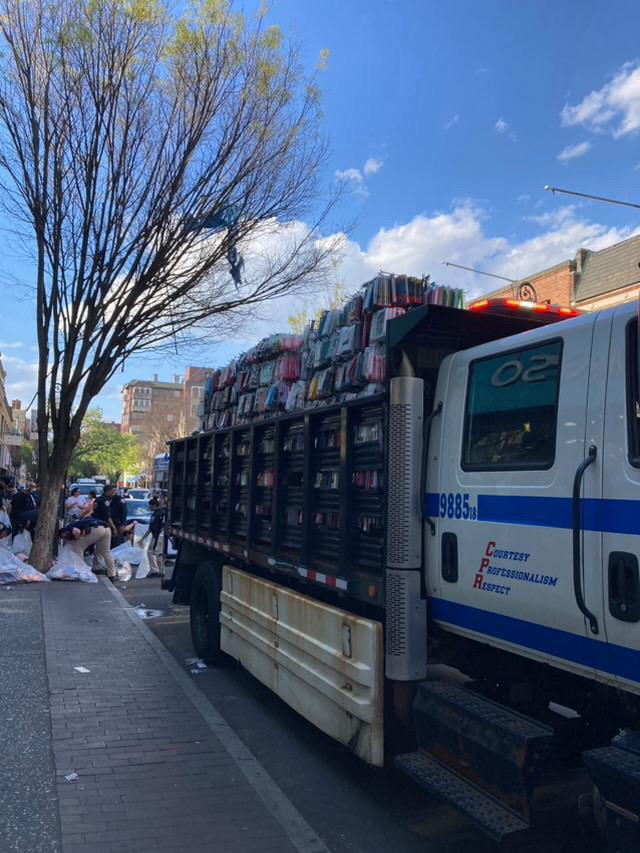
“Government works best when we have unity and respond directly to the complaints of our constituents,” Moya said. “I’m thankful to Mayor Adams for being a partner I can count on to stand with me and my community. We are using every tool in our toolbox to crack down on illegal actions.”
Walking eastbound on Roosevelt Avenue past Baxter Avenue, where the NYPD has stationed a mobile command center after police carried out much-publicized raids of alleged brothels in January, one can see the number of street vendors and migrant sellers proliferating in Corona. As the weather warms, more raids will follow.
“Our commitment remains, and we will employ all measures within the law to close down unlicensed operations,” Moya said. “Our dedication to ensuring community safety is firm, and we will persist until the job is done.”
The Street Vendor Project at the Urban Justice Center took umbrage with Moya’s comments to Telemundo, saying, “We have regulations here; if you want to do something, you have to apply to get a license to vend.”
On Thursday, Apr. 18, the Street Vendor Project organized a rally at Bowling Green in Lower Manhattan that brought together more than 150 vendors from across the city to amplify their complaints that it is almost impossible to obtain a license due to the city’s longstanding cap on permits. Many of the estimated 20,000 vendors citywide have waited decades with no result.

“Right now, you have two major waitlists. Each of them has more than 10-thousand names on it,” Street Vendor Project Managing Director Mohamed Attia said before leading a march to the Department of Consumer and Worker Protection (DCWP) Licensing Center at 42 Broadway.
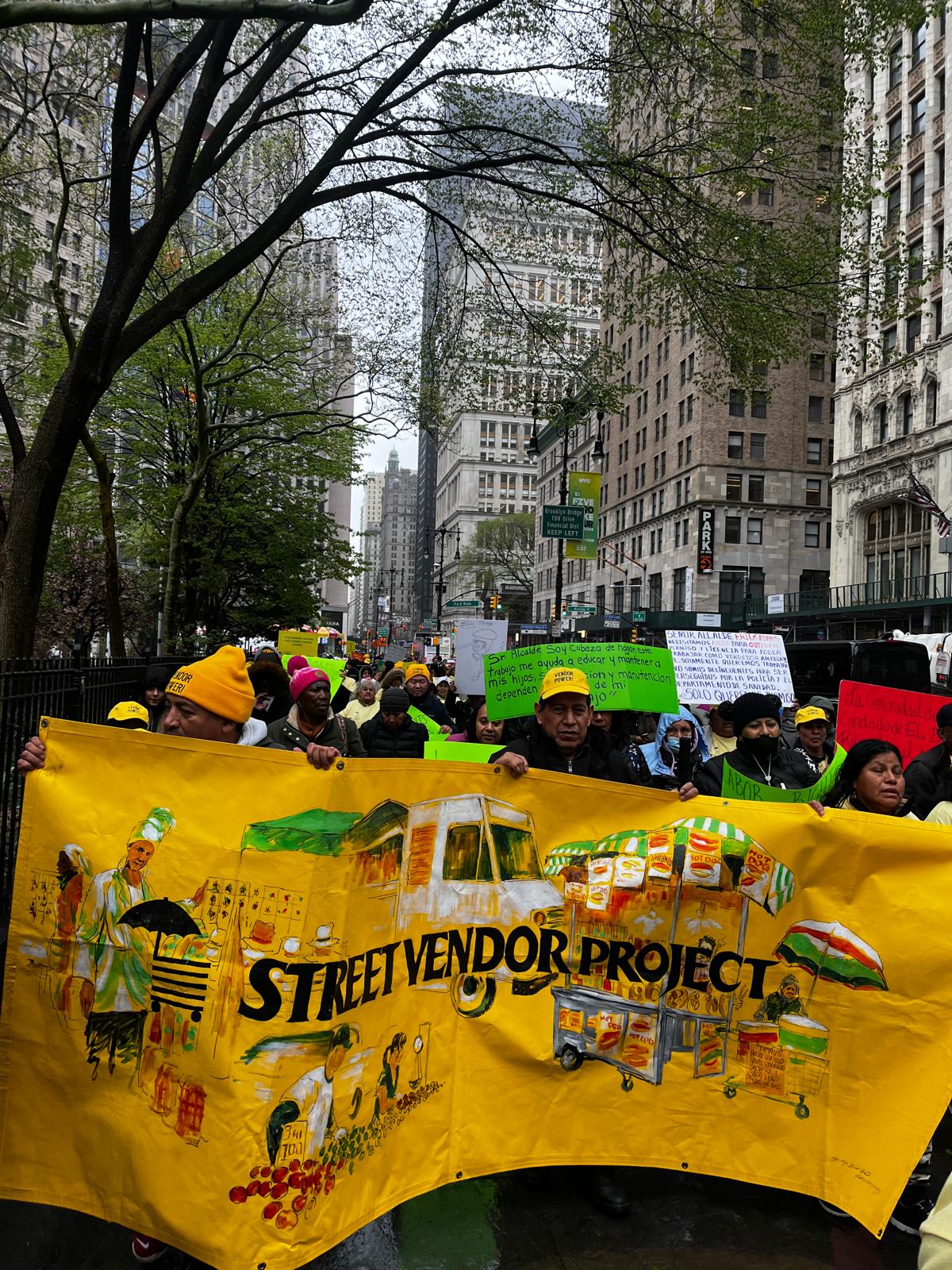
Chanting, “We want licenses, not lies,” in English and Spanish, the vendors were met by a DCWP official who confirmed there are currently 20,309 individuals on waitlists for vending permits. The would-be entrepreneurs can rent a permit on the black market for up to $25,000 or vend without one, facing recurring $1,000 fines. Harassment and property confiscation, according to the Street Vendor Project, who has an ally in Queens Borough President Donovan Richards, who was an outspoken critic of the Mayor’s decision to clear Corona Plaza of street vendors last summer. During his Apr. 12 State of the Borough Address, with Mayor Adams in the front row, Richards admitted he was still angry.
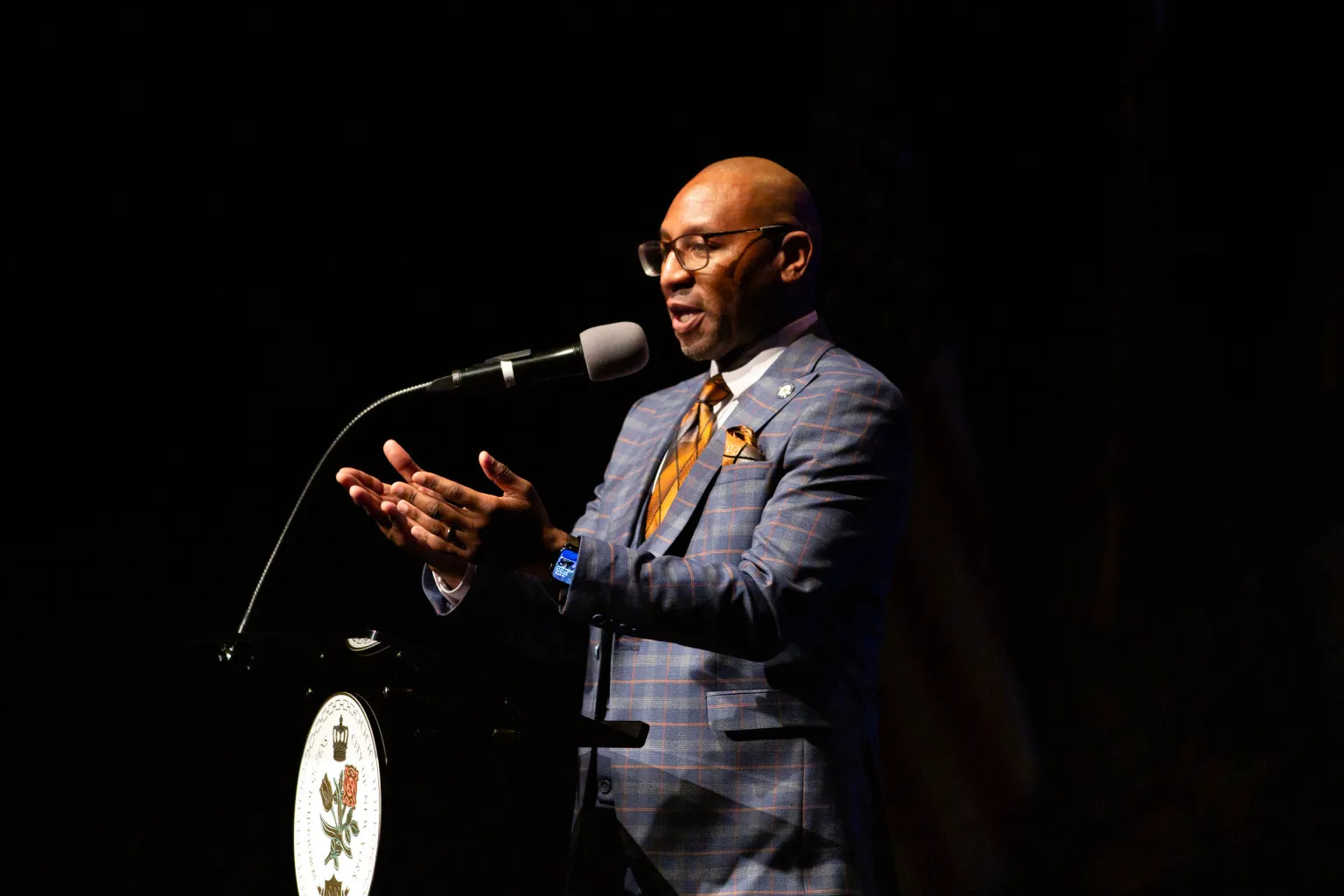
“My Corona Plaza Task Force had been working for a year on making the space safer and more sanitary and seeing success. But with no notice, these mainly immigrant street vendors were suddenly out of a job with no way to feed their families,” Richards said. “I’ll be damned if I let anyone say they support immigrants but then take food out of their mouths and money out of their pockets. Where’s the justice in that?”
Just days after his speech at the Queens Theatre, the NYPD and DSNY launched the crackdowns on Roosevelt Avenue, confiscating merchandise and showing off the contraband stored at the 115th Precinct in Jackson Heights. On Thursday, Richards was back at Corona Plaza to announce a grant of $100,000 awarded by Flagstar Bank to help support the limited number of street vendors who have been allowed to operate there since February after Richards threatened to withhold his support for the new NYCFC soccer stadium at Willets Point.
“I am elated that the Council Member, who has represented this community for well over a decade, has finally decided to join his fellow elected officials who have long been working collectively to address the street vendor economy and area quality-of-life concerns,” Richards said. “I’m excited to hear sound solutions from his task force that uplift hard-working immigrant street vendors and get to the heart of why survival work is prevalent in pockets of his district. I’m proud to have negotiated a plan to ensure that street vendors from across District 21 are included in the Willets Point soccer stadium plan, and I’m looking forward to the Council Member’s partnership in making that effort a reality.”

